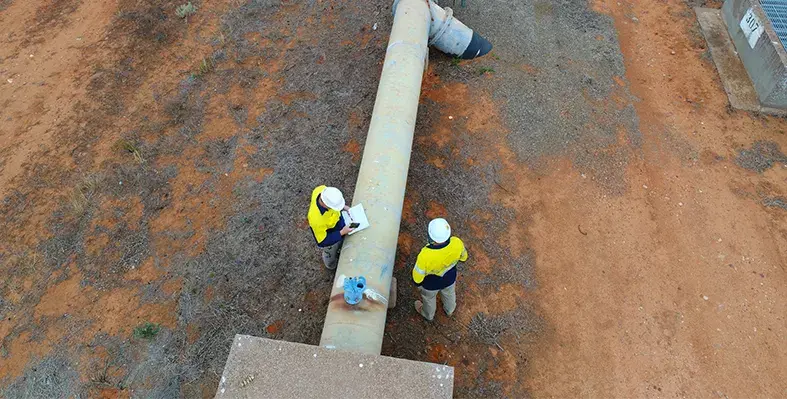Cathodic protection specialist Omniflex has collaborated with researchers at Australia’s Deakin University to develop a novel closed-loop cathodic protection (CP) system for localised corrosion control in offshore and underground infrastructure such as underground or subsea oil and gas pipelines
Prototype field tests on underground pipelines have demonstrated a reduction in corrosion by around 90%, potentially doubling operational lifetimes of these structures when exposed to harsh environments.
The closed-loop probe is the outcome of several years of research by the team at Deakin University supported by the Energy Pipelines CRC, Future Fuels CRC, the Australian Economic Accelerator project, Omniflex and specialist pipeline operators. Omniflex worked with the team to develop the technology’s electronics, integrate sensors and facilitate remote monitoring and control capabilities.
The technology facilitates improved localised corrosion control in complex and varying environmental conditions. The potential applications include protecting offshore structures, such as oil and gas platforms and wind turbines, and underground infrastructure, such as steel pipelines and storage tanks.
“Currently, corrosion under disbonded coatings is a major issue impacting the safe operational life of underground gas pipelines and future hydrogen pipelines,” explained Professor Mike Tan, professor of applied electrochemistry and corrosion techniques at Deakin University.
“In one of our prototype tests on an underground gas pipeline, we reduced localised corrosion by roughly 90%. This level of corrosion reduction can more than double operational lifetimes, making installations more sustainable and cost effective. This capability of closed-loop control of cathodic protection not only mitigates corrosion, but also avoids over protection that can cause issues like hydrogen embrittlement and cathodic disbondment of coatings,” continued Tan.
“Traditional CP systems don’t change output voltages and currents under constantly varying conditions by directly measuring corrosion current, meaning there is a risk of over- or under-protection,” explained David Celine, managing director of Omniflex. “Some may assume that you can’t have too much protection, but this is not the case with CP systems. Apart from wasting energy, over-protection can produce hydrogen and cause embrittlement, ultimately causing structural failure.
“The closed-loop CP probe, with in-built remote monitoring and control capabilities, allows us to account for ongoing variances caused by factors like stray current and leakage and consistently maintain optimal protection levels.”
The project is now entering the commercialisation phase.








